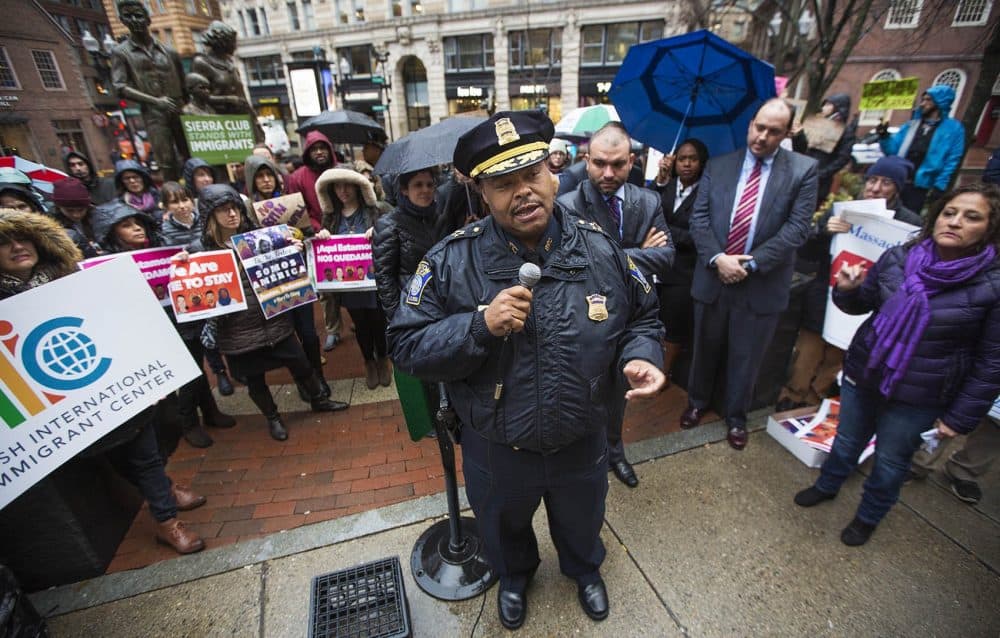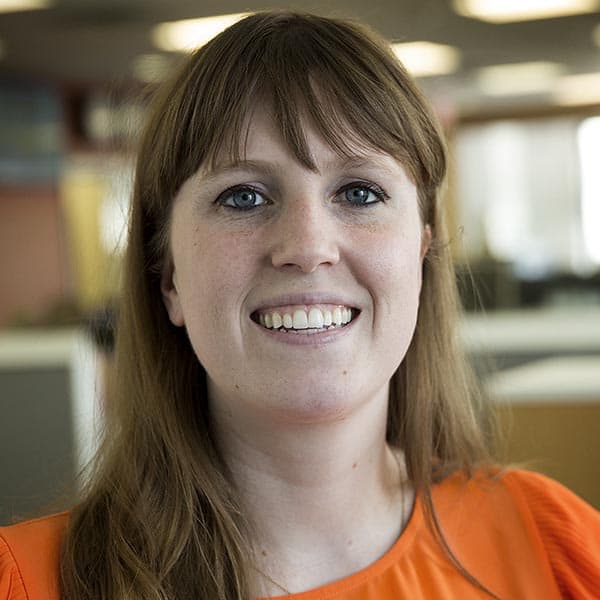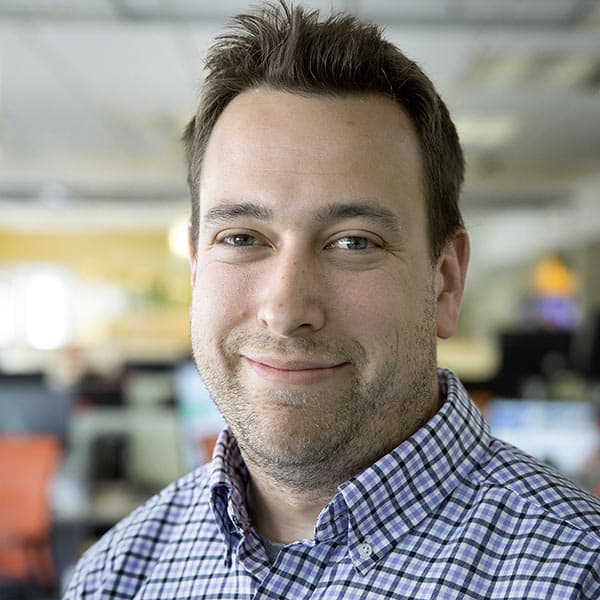Advertisement
Boston Police Commissioner William Gross On Community Policing, Body Cameras

Boston Police Commissioner William Gross, the first African-American to hold the position, has several top priorities for his police force. Namely, he wants the department to step up community policing, maintain transparency and increase diversity and wellness among its ranks.
Gross, who is a former BPD superintent-in-chief, was sworn in as commissioner about a month ago after his predecessor, Bill Evans, announced he would be leaving for a job as the executive director of public safety at Boston College.
Gross joins Radio Boston to discuss his goals, as well as the roll out of the department's new body camera initiative and the role of judges in the criminal justice system.
Guest
William Gross, commissioner of the Boston Police Department, which tweets @bostonpolice.
Interview Highlights
On his top priority
"The main focus, of course, is one that's always a great concern for the city — and that is to end senseless violence, especially youth violence. We want to work hand-in-hand with the communities to not create avenues for some of our most challenged individuals to go down the road where they'll be in gangs or commit senseless acts of violence or be susceptible to predators such as drug dealers, human traffickers and the like. When we increase our community policing model, that means we have to strengthen the families, and that's going to be with everybody's help."
On how being raised in Boston affected him
"Arriving in Boston in 1975 at the height of busing — of forced busing — it was quite an awakening for a country mouse to become a city mouse at such a tumultuous time in our city. But through that, the community helped raise me so I learned from everybody. My single parent mother, of course, raised my older sister, myself, my younger sister. But the rest of the family was the community. That's why I'm always referencing the community — because if a poor kid from Hillsborough, Maryland can make it here in Boston all the way from the neighborhood to the police department to police chief and then commissioner, imagine what we can do as a community to help ensure that every kid in Boston has that same opportunity. But it really does require that each and everyone of us step up and help make a sacrifice for others."
On what it's like to be Boston's first black police commissioner
"It gives me an opportunity to just say thank you. There were many people that fought for justice and equality — many people of all races that walked hand-in-hand with Dr. Martin Luther King and other great advocates for justice and equality. So, it's my opportunity to just thank you, especially to the seniors anyone that fought to make sure that I could be here in this capacity."
This segment aired on September 4, 2018.

